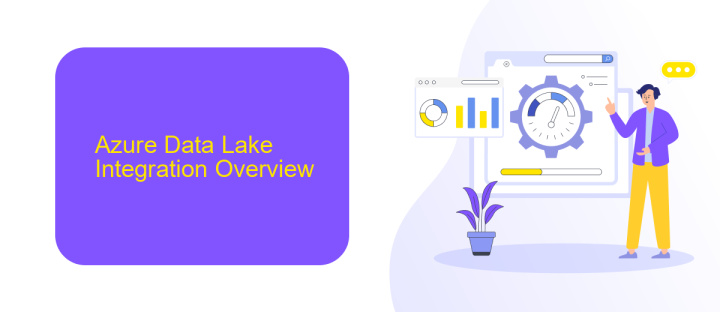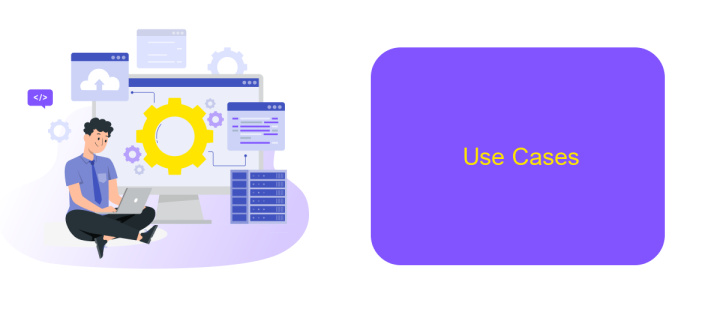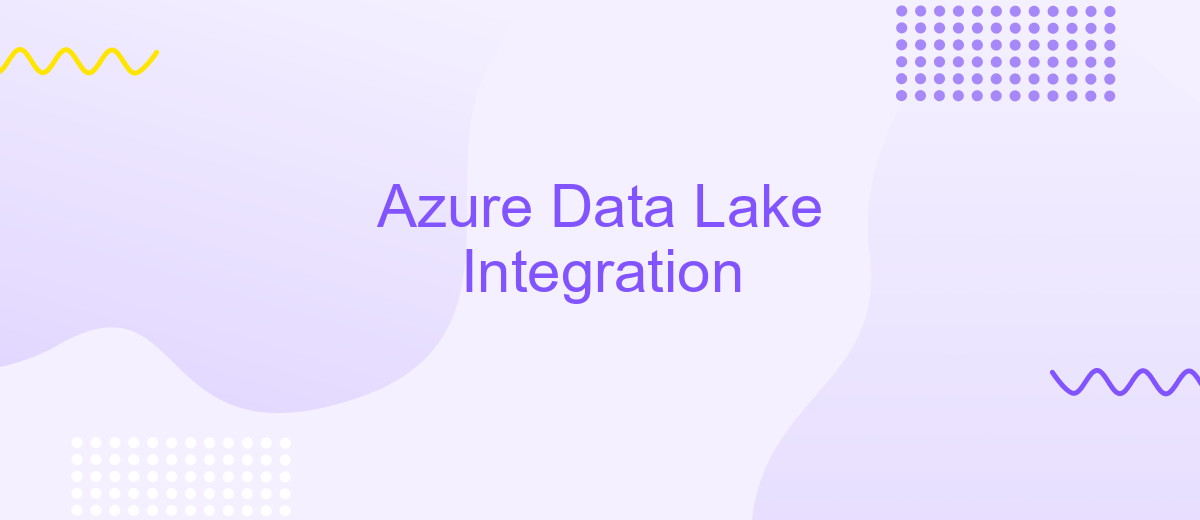Azure Data Lake Integration
Azure Data Lake Integration is revolutionizing how businesses handle large-scale data management and analytics. By leveraging Azure's powerful cloud infrastructure, organizations can efficiently store, process, and analyze vast amounts of data in real-time. This article explores the key features, benefits, and best practices for integrating Azure Data Lake into your data strategy, helping you unlock deeper insights and drive informed decision-making.
Introduction
Azure Data Lake is a powerful tool for managing and analyzing large volumes of data. It provides a scalable and secure environment for storing data of any size, shape, and speed, making it an essential component for modern data-driven enterprises. Integrating Azure Data Lake with other systems and services can significantly enhance its capabilities and streamline data workflows.
- Seamless integration with various data sources
- Enhanced data processing and analytics
- Secure and scalable data storage
- Support for a wide range of data formats
To facilitate the integration process, tools like ApiX-Drive can be invaluable. ApiX-Drive simplifies the connection between Azure Data Lake and numerous other platforms, automating data transfers and synchronization. This ensures that your data is always up-to-date and accessible, allowing you to focus on deriving insights and driving business value.
Azure Data Lake Integration Overview

Azure Data Lake Integration provides a scalable and secure solution for managing large volumes of data. It enables seamless data storage, processing, and analytics, making it an essential tool for businesses aiming to leverage big data. By integrating with various data sources, Azure Data Lake facilitates efficient data ingestion and transformation, ensuring that data is readily available for analysis and decision-making. This integration supports a wide range of data formats, making it versatile for different business needs.
Setting up Azure Data Lake Integration can be streamlined using services like ApiX-Drive. ApiX-Drive simplifies the process by offering automated workflows that connect Azure Data Lake with other applications and data sources. This service reduces the complexity of manual integrations, allowing businesses to focus on deriving insights from their data. With ApiX-Drive, users can easily configure data pipelines, ensuring continuous data flow and real-time updates, which enhances the overall efficiency of data management and analytics operations.
Key Features and Benefits

Azure Data Lake Integration offers a comprehensive solution for managing and analyzing large volumes of data. This robust platform is designed to handle data from various sources, providing seamless integration and advanced analytics capabilities.
- Scalability: Azure Data Lake can scale to accommodate vast amounts of data, ensuring that your storage and processing needs are met as your data grows.
- Advanced Analytics: With built-in analytics tools, you can perform complex data analysis and gain valuable insights without the need for additional software.
- Seamless Integration: Easily integrate with other Azure services and third-party tools like ApiX-Drive, which simplifies the process of connecting your data lake to various data sources and applications.
- Security: Azure Data Lake provides robust security features, including encryption and access controls, to protect your data from unauthorized access.
- Cost-Effective: Pay only for the storage and compute resources you use, making it a cost-effective solution for managing large datasets.
By leveraging Azure Data Lake Integration, businesses can efficiently manage their data, perform in-depth analyses, and make data-driven decisions. The integration with tools like ApiX-Drive further enhances the platform's capabilities, making it easier to connect and automate data workflows.
Use Cases

Azure Data Lake Integration provides a robust platform for managing and analyzing large volumes of data. It enables businesses to store data of any size, shape, and speed, making it accessible for high-performance analytics and machine learning models. This flexibility is essential for organizations aiming to leverage big data for strategic decision-making.
One of the primary use cases for Azure Data Lake Integration is in the field of data warehousing. By consolidating disparate data sources into a single repository, businesses can perform comprehensive analytics and derive actionable insights. Additionally, it supports real-time data processing, which is crucial for industries that rely on timely information, such as finance and healthcare.
- Data Warehousing: Centralize data for comprehensive analytics.
- Real-Time Data Processing: Enable immediate insights and actions.
- Machine Learning: Train models on vast datasets for better accuracy.
- Data Governance: Ensure compliance with regulatory standards.
Moreover, integrating Azure Data Lake with services like ApiX-Drive can streamline the process of data ingestion and synchronization. ApiX-Drive offers automated workflows that connect various data sources to Azure Data Lake, reducing manual effort and ensuring data consistency. This integration is particularly beneficial for businesses looking to enhance their data management capabilities without extensive technical overhead.
- Automate the work of an online store or landing
- Empower through integration
- Don't spend money on programmers and integrators
- Save time by automating routine tasks
Conclusion
Integrating Azure Data Lake into your data management strategy offers numerous benefits, including enhanced data storage, scalability, and advanced analytics capabilities. By leveraging Azure Data Lake, organizations can efficiently manage large volumes of data, streamline data processing workflows, and gain valuable insights through powerful analytics tools. This integration not only supports real-time data analysis but also ensures data security and compliance with industry standards.
For seamless integration and automation, utilizing services like ApiX-Drive can significantly simplify the process. ApiX-Drive enables easy setup and management of data flows between Azure Data Lake and various other platforms, ensuring smooth data synchronization and reducing manual intervention. By incorporating such tools, businesses can optimize their data operations, enhance productivity, and focus on deriving actionable insights from their data. Ultimately, integrating Azure Data Lake with robust automation tools paves the way for a more efficient and data-driven organizational ecosystem.
FAQ
What is Azure Data Lake Integration?
How can I automate data integration with Azure Data Lake?
What are the benefits of integrating Azure Data Lake with other data services?
Can I integrate Azure Data Lake with on-premises data sources?
What are the common challenges in Azure Data Lake Integration?
Time is the most valuable resource in today's business realities. By eliminating the routine from work processes, you will get more opportunities to implement the most daring plans and ideas. Choose – you can continue to waste time, money and nerves on inefficient solutions, or you can use ApiX-Drive, automating work processes and achieving results with minimal investment of money, effort and human resources.


